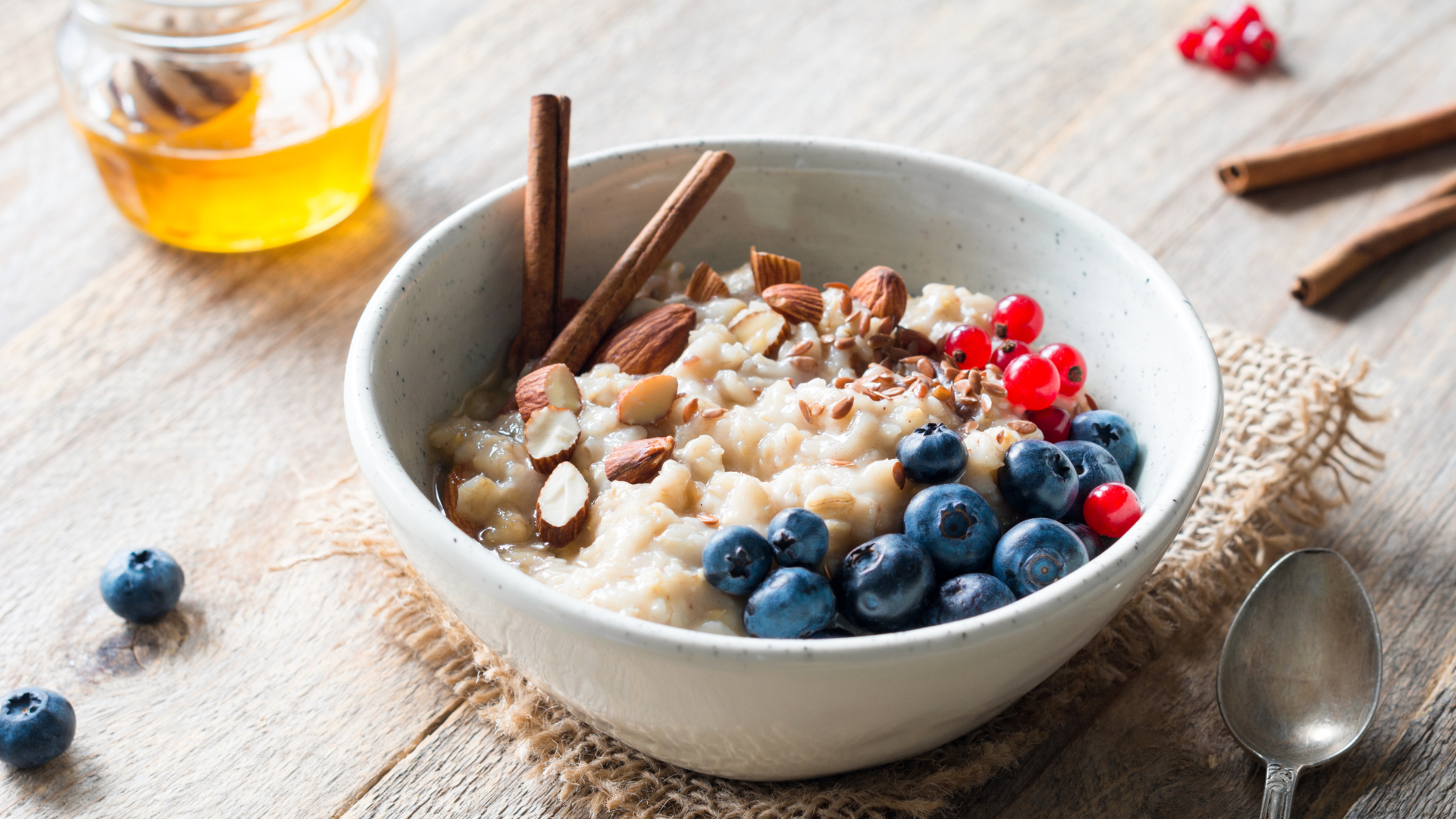A Day of Brain-Healthy Eating: How One Doctor Fuels Her Mind and Body

When it comes to protecting your brain, what you eat each day can have a profound impact. Dr. Christine Greer, a neuro-ophthalmologist, doesn’t just talk about brain health—she lives it through her daily nutrition choices. From breakfast to dessert, she builds her meals around foods that support cognitive function, reduce inflammation, and keep energy levels stable.
Here’s a look at how Dr. Greer plans and prepares a day of brain-healthy meals for herself and her family.
Meal Planning Starts on Sunday
"Everything I do is in meal planning," says Dr. Greer. She begins each week by thinking through meals and snacks to avoid last-minute decisions that might lead to processed food. While it’s nearly impossible to eliminate processed foods entirely, she makes a conscious effort to minimize them and prioritize fiber-rich, whole-food ingredients.
Breakfast: High in Fiber and Protein
An ideal breakfast, according to Dr. Greer, includes two key elements: fiber and protein. These nutrients support sustained energy, gut health, and long-term brain function.
Some of her go-to breakfast options include:
- Yogurt: Even full-fat yogurt is a healthy choice when it's low in sugar. To make it more enjoyable, Dr. Greer adds chia seeds, berries, a small amount of granola, and sometimes nuts to enhance both the flavor and texture.
- Eggs: A versatile, protein-rich food that’s easy to prep ahead. Scrambled, boiled, or on-the-go, eggs provide healthy fats and long-lasting satiety.
- Oats: Whole oats (as opposed to instant varieties) offer high fiber and a decent protein boost. While they take a bit longer to cook, Dr. Greer considers them an ideal, brain-friendly breakfast staple.
Mid-Morning Snack: Healthy, Quick, and Satisfying
Since she’s a self-proclaimed “big snacker,” Dr. Greer makes sure she has smart options on hand to curb hunger between meals:
- Fresh berries and apples: Naturally sweet, high in fiber, and convenient
- Dried fruit: Acceptable in moderation—options like prunes offer both sweetness and fiber, though she notes their sugar content
- Celery with peanut butter: A crunchy, protein-packed snack that satisfies hunger and provides healthy fats
- Roasted edamame beans: High in plant-based protein and fiber, these make a great portable, savory option
Lunch: Simple Vegetables and Quality Protein
Dr. Greer tries to include at least one serving of vegetables, even when time is short.
- Chopped salads are a favorite when there’s time to prep
- Canned tuna over romaine is a quick way to get both vegetables and omega-3 fatty acids—great for brain health
- Other easy veggie-based combinations help ensure she meets her daily plant intake
Dinner: The Rainbow Plate
Dinner is where Dr. Greer’s philosophy really comes to life. Her goal is to create a rainbow plate—a colorful variety of vegetables, each offering different nutrients that support the brain.
Some common elements on her dinner table:
- Broccoli: A fiber-rich cruciferous vegetable with anticarcinogenic compounds. It’s often steamed, roasted, or served raw for speed and convenience.
- Carrots and red bell peppers: Less fiber, but rich in antioxidants that support mitochondrial function in brain cells.
- Whole grains and lean protein: Quinoa (which can double as a protein and carb), grilled chicken, brown rice, or whole wheat pasta provide complex carbohydrates and sustained energy.
"Each one of these vegetables sort of addresses a different element of brain health," she explains. “That’s why I call it a rainbow plate.”
Dessert: Sweet, Light, and Brain-Conscious
Dessert is still part of the routine, especially with kids at the table. Dr. Greer keeps it simple and refreshing:
- Store-bought or homemade sorbet
- Berries with whipped cream
These options provide a touch of sweetness without relying on heavy, processed ingredients.
The Takeaway
Dr. Greer’s daily diet is built on one core idea: what you eat should support the health of your brain. By choosing whole foods, planning ahead, and prioritizing fiber, antioxidants, healthy fats, and clean proteins, she creates meals that are nourishing, satisfying, and sustainable.
Whether you’re feeding yourself or a busy family, small changes—like incorporating more colorful vegetables or prepping snacks in advance—can have a meaningful impact on your brain health over time.
To learn more about brain healthy eating, watch our full conversation with Dr. Christine Greer in the video above.
By Alicia J. Barber, PhD
Disclaimer
The Video and Written Educational Content included on this site is not intended to be a substitute for professional medical advice, diagnosis, or treatment. Always seek the advice of your physician or other qualified health provider with any questions you may have regarding a medical condition. Never disregard professional medical advice or delay in seeking it because of something you have read or seen on the Site.
The information contained in the Educational Content posted represents the views and opinions of the individual in the recording and does not necessarily represent the views or opinions of IND. The mere appearance of Educational Content on the Site does not constitute an endorsement by IND or its affiliates of such Content.
The Educational Content has been made available for informational and educational purposes only. IND does not make any representation or warranties with respect to the accuracy, applicability, fitness, or completeness of the Content. IND does not warrant the performance, effectiveness or applicability of any sites listed or linked to in any Content. IND hereby disclaims any and all liability to any party for any direct, indirect, implied, punitive, special, incidental or other consequential damages arising directly or indirectly from any use of the Content, which is provided as is, and without warranties.